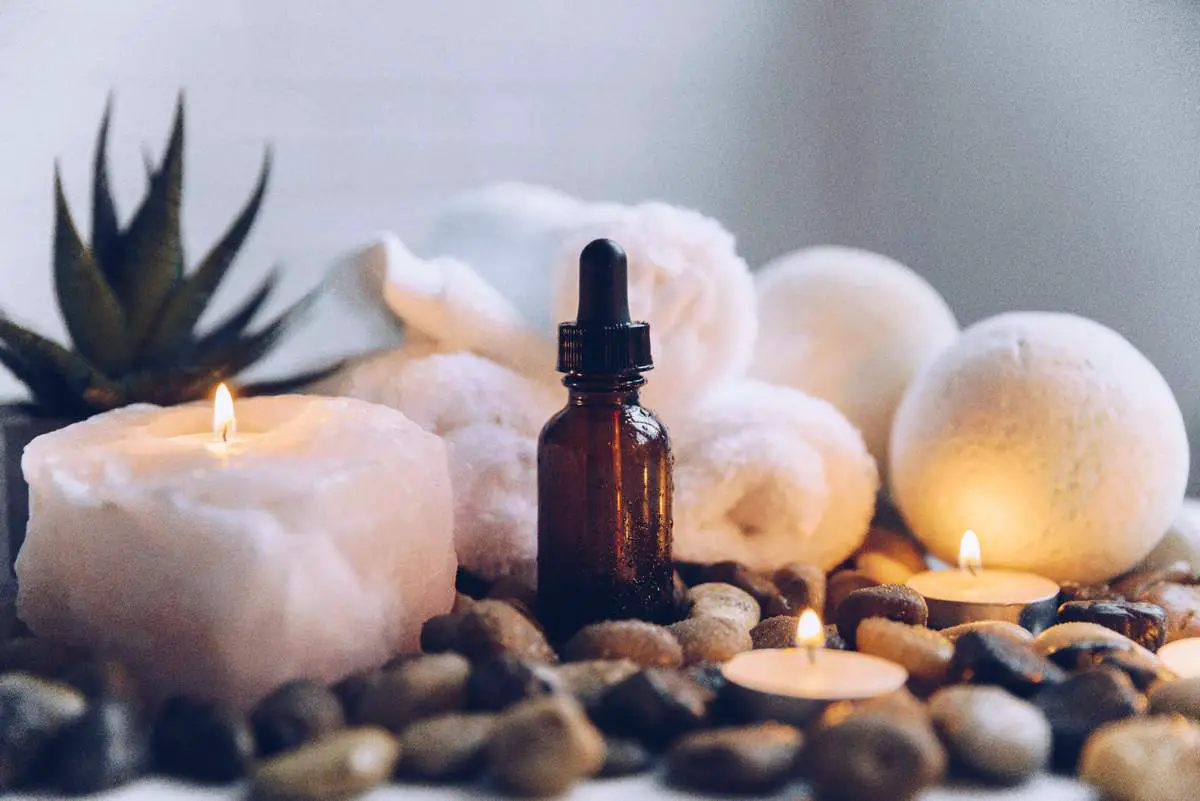Essential oils come from aromatic plants. Their scent makes the indoor air smell great and makes you feel better. Rosemary oil, lavender, eucalyptus, tea tree oil and peppermint oils are all favourite essential oils. However, they are a mixture of organic chemicals-terpenes and phenylpropanoid compounds. These are disused end products of metabolism, which are produced and stored in special cells in the leaves and other parts of the plant. One of their functions is to protect the plant from insects and animals that might eat it. So they act as a sort of chemical weapon against predators.
Used widely in the food and cosmetic industries, they are generally recognized as safe, although more on this later. Essential oils can be diffused into the air using a carrier oil. There are various types of essential oil diffuser-an ultrasonic diffuser and nebulizer diffuser are commonly used, but probably not the best choice for use with an air purifier. With other appliances such as humidifiers it is possible to use essential oils in them but the humidifier has to be specially designed to take the essential oils. So it is natural to consider if you could use essential oils in an air purifier as then it would be one less appliance to buy and maintain.
However, as a general rule, you cannot use essential oils in an air purifier but you can use them in a diffuser together at the same time as using an air purifier. Ideally, you would have an air purifier without a carbon filter which removes chemicals, including the essential oils, from the air.
Most modern air purifiers have carbon filters. Carbon filters are very effective at reducing chemicals from the air and so will remove essential oils, until they become saturated. There are various strategies for dealing with this outlined below.
Can I put essential oil in an air purifier?-No
The vast majority of air purifiers are based on a fan pushing air through the filter. All the parts are dry and the filter needs to be kept dry to maintain its air purification capacity. So there is no scope for putting essential oils in the usual sort of air purifier.
You may wonder if you can put essential oils in a water-based purifier. This type of air purifier is not really effective at removing particles, and so it would not be advisable to buy one.
Can I use essential oils with an air purifier? – Yes
You can use essential oils with an air purifier. The best type of air purifier to use with an air purifier is a HEPA air purifier.
Type of Air Purifier for Use With Essential Oils
The main reason for using an air purifier is to remove particles that you would otherwise breathe in and may damage your health. So you should get a purifier with a HEPA air filter. The difficult part regarding the air purifier is what to do about the carbon filter which will try to absorb the chemicals, in this case, the essential oils in the air.
In one test, an iQair air purifier removed 90% of volatile organic chemicals (VOC) from the air in 45 minutes. So ideally a strategy is needed to stop the carbon filter removing the essential oils so thoroughly. Possible strategies are-
Buy an Air Purifier Which has a Carbon Filter That Can be Removed
You could buy an air purifier in which the carbon filter is separate from the particulate filter and can be removed without reducing the effectiveness of the purifier in reducing particles.
The problem is that often the purifier is designed such that if the carbon filters removed, the particulate filter will not fit properly. Without the pressure of the carbon filter pushing the particulate filter against the seal air can escape around the particulate filter without going through it. – see the diagram below.
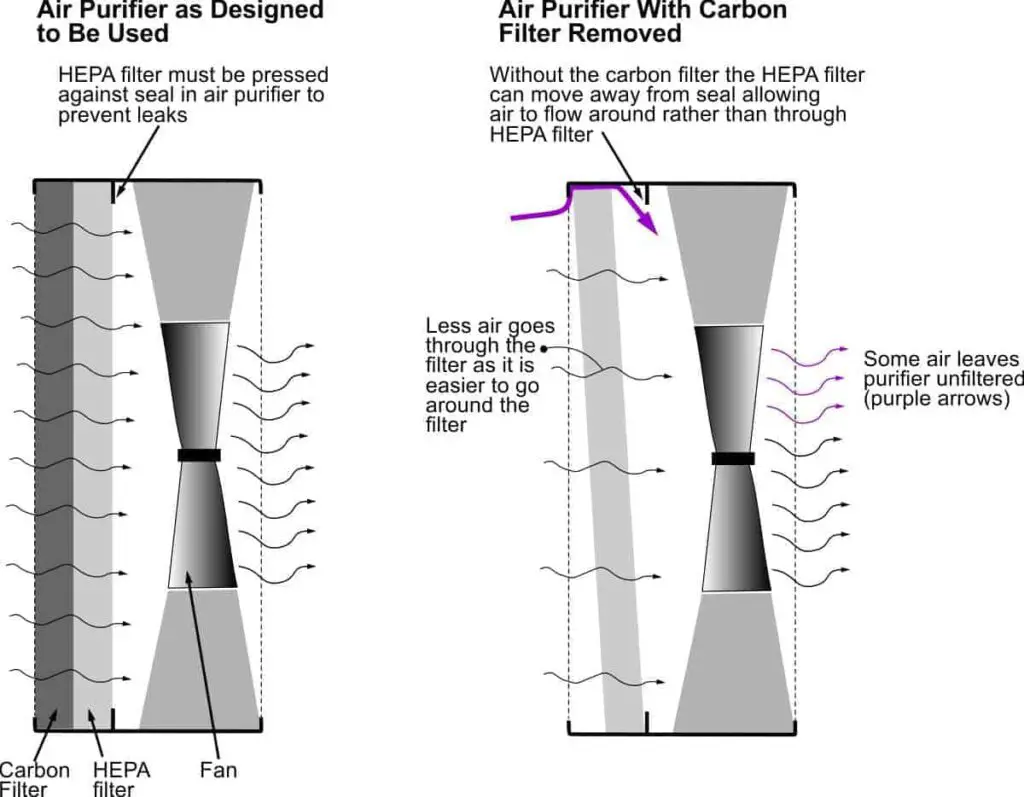
The only air purifier that I am currently aware of that would fit into this category would be an iQair HealthPro Plus.
Buy an Air Purifier With a Carbon Filter That Has a Frame and Cut the Center of the Filter Out
Usually it is the edges of the carbon filter pressing the HEPA filter against the frame of the air purifier housing, that keeps the HEPA filter in place. So if you may be able to cut out most of the middle of the carbon filter and the edges of the filter will still keep the HEPA filter in place. This will be easier and better if the carbon filter has a frame. If you do this you will need to use an air quality meter to check that the air purifier still removes particles properly.
Buy an Air Purifier Without a Carbon Filter
Carbon filters to deal with the indoor chemical air pollution have become a standard part of modern air purifiers. Consumers now expect an air purifier to have a carbon filter- so manufacturers almost always include one.
Again I am only aware of one air purifier in this category-the iQair HealthPro Compact. However, I would advise buying the iQair HealthPro Plus as this then gives you the option to use a carbon filter in the purifier later.
Even if You Have an Air Purifier Which Has a Carbon Filter That Cannot be Removed-it Will Become Saturated and Stop Removing the Essential Oils
At some point even if you do use an air purifier, the carbon filter will become so saturated with the oil that it cannot absorb any more. At that point, all the oil that you diffuse into the air will remain in the air. If the carbon filter is separate, then you can simply leave the old carbon filter in the machine when you change the other filters.
If the carbon filter is not separate, then you will have no option but to change the filter. You will then need to wait until the carbon part of the filter become saturated. At this point, it will stop absorbing the essential oils. To increase the time between filter changes, you may want to buy an air quality meter and change the filters only when the performance of the filter decreases.
Air Purifiers Made to be Used With Essential Oils
You can use essential oils in an air purifier in some specially designed machines. These are small air purifiers, usually with an evaporative pad just inside the outflow of air from the machine or actually on top of the machine. Drops of essential oil or put onto this pad. These air purifiers are small and most do not give their clean air delivery rate (CADR), so you have no idea what size room they will be suitable for. One that did give it’s clean air delivery rate which is from an unrecognized manufacturer so we cannot be sure it is correct, it may be lower, would at best be suitable for a room 7′ x 7′. The vast majority of these machines are from unrecognized manufacturers.
It would be better to buy a more capable air purifier from a recognized manufacturer and put an air purifier pad near or actually on the air outlet.
Essential Oils and Air Purifying Plants
Air purifying plants can remove essential oils (Volatile organic compounds) from the air. However, to have a significant effect you would need hundreds of plants in one room. So do not need to worry that plants are likely to remove all the essential oils that you are putting into the air.
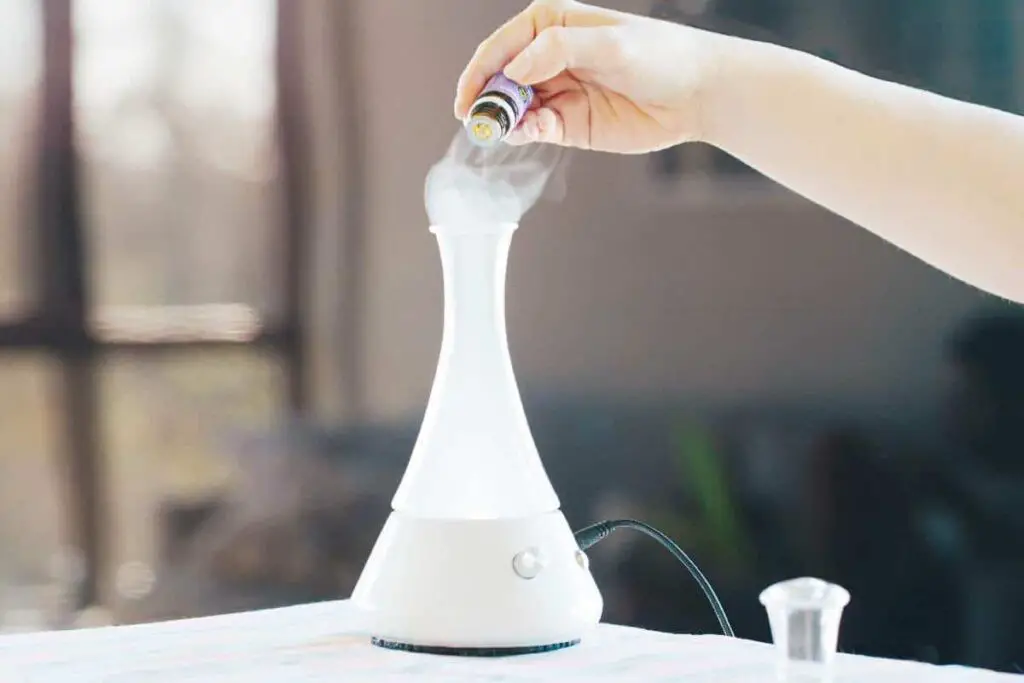
Type of Diffuser-a Heat Diffuser or an Evaporative Diffuser Is Best For Use With an Air Purifier
You need a diffuser to get the oils into the air but the type of diffuser is important as if the droplets in the air are too big then they will become caught in the HEPA filter in addition to being removed by the carbon filter.
The various types of diffuser are-
- Ultrasonic diffusers-pure essential oils are added to the water in the diffuser and the ultrasound produces small droplets of the mixture into the air as mist
- Nebulizing Diffusers-use an atomizer to create a spray of fine droplets of the essential oil which are distributed into the air
- Heat Diffusers-use warmth to evaporate essential oils into the air. Often they use heat from a candle but this would increase particulate pollution in the air tremendously and so it would be better to use an electronic version.
- Evaporative Fan Diffuser-the essential oil is put on a pad and air is passed over the pad to help the oil diffuse into the air.
The problem with options 1 and 2 is that the droplet size is likely to be large enough to be trapped by the HEPA filter. This will degrade the performance of the filter over time. In addition, the air purifier will remove the diffuse essential oil from the atmosphere quickly. So a heat (not using a candle) or evaporative fan diffuser is the best choice for using essential oils with an air purifier.
A blend of favorite essential oil can be used in each of these diffusers, so for instance, tea tree essential oil could be used with lemon essential oil. Also, they can all be used as an aromatherapy diffuser. It is also possible to use essential oils in a spray bottle as a room spray to produce a homemade air freshener. This can be used to mask an odor and give the air a fresh scent. None of the various types of diffuser really function as a humidifier, although an ultrasonic diffuser will add some water to the atmosphere.
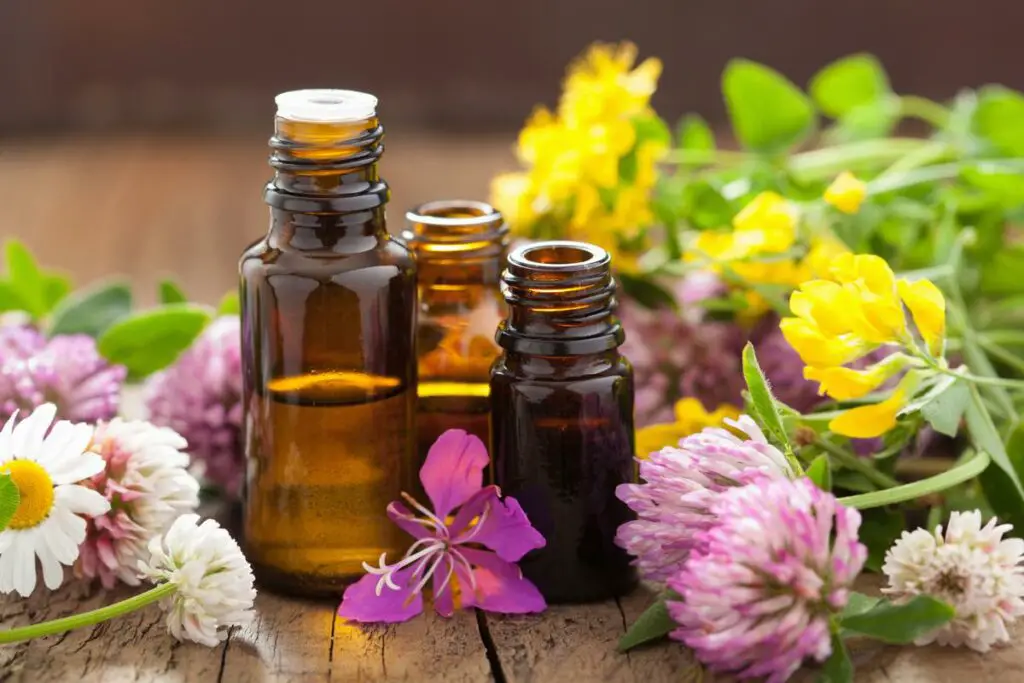
The Best Aromatherapy Air Purifier
So the best aromatherapy are purifier is one that has a separate carbon filter that can be removed and the air purifier will still function properly. This is because the carbon filter will remove the aromatherapy from the air. These air purifiers are not all that common, often the carbon is coated onto the filter. Sometimes the carbon filter is needed to press against the HEPA filter to keep it in place and form an airtight seal.
A few air purifier ranges have a model without a carbon filter. For instance, the iQair Healthpro Compact, the rest of the iQair range eg the Healthpro Plus have removable carbon filters so it you buy one you can have the carbon filter in or out of the machine as you please.
Health Aspects When Using Essential Oils With an Air Purifier
Essential oils are generally thought to be safe, but they can contain compounds that can harm some people. Children and pregnant women are particularly vulnerable.
There only two essential oils that have reasonable evidence of effectiveness. Peppermint oil for headaches and lavender essential oil for sleep.
Peppermint Oil
Peppermint oil taken by mouth will help with some forms of abdominal pain. Peppermint oil will relieve the symptoms of a headache if applied directly to the skin.
Regarding the inhaling of peppermint oil, a review of multiple studies showed there was no definite effect on post-operative nausea. Another study showed a reduction in the nausea from chemotherapy. One study showed a decrease in sleepiness with peppermint in the air.
Specific Groups That Should Avoid Inhaling Peppermint Oil
- People on some common medications. Aromatherapy with pepermint oil can inhibit an enzyme system in our bodies that breaks down many medications, CYP3A4. So if you are on a medication which this enzyme system breaks down and you inhale peppermint oil vapor the plasma level of the medication will tend to rise. So you or anyone else inhaling the peppermint oil could be effectively overdosing on your/their medication. This effects quite a few common medications.
- People with G6PD deficiency-a genetic enzyme defficiency that leads to the breakdown of red blood cells in response to certain stresses/exposures to compounds.
- Children, babies and pregnant women
Peppermint oil can be toxic for pets including cats and dogs.
Lavender
Lavender reduces mild anxiety to a similar extent that a small dose of lorazepam will. It also changes the brain activity as shown by brain scanning. It has mildly anticholinergic properties, that is it inhibits neurotransmission from brain cell to brain cell with one particular very common transmitter-acetylcholine. This effect ie inhibiting the interaction of neurones over years has been associated with an increased risk of mild cognitive impairment and dementia.
However, there is no proof that lavender increases dementia, possibly because there have not been any long-term studies yet. Lavender also reduced a marker of genetic activation associated with neuronal activity. There are also possibly beneficial effects of lavender, it is antioxidant. It stimulates dopamine, and GABA neuronal signalling and inhibits histamine release ie it also modulates other neurotransmitters. Anticholinergic effects seem to be central to its action however.

Brain scans have shown that lavender increases activitiy in some areas of the brain and reduces activity in other areas. Lavender aromatherapy also altered the EEG, electrical activity of the brain.
Short-term studies on thinking ability, cognitive function show impairment of memory or no change and on arithmetic reasoning a reduction, no-change or an improvement. So no definite conclusion can be reached regarding short term effects on thinking ability.
Lavender increased appetite and body weight in rats when they took lavender orally. It also decreases fat break down and heat production again, potentially increasing weight gain. In addition, it has estrogenic and anti-androgenic activity. When taken orally (which you should not do with the essential oils that you buy) there were slightly more adverse events and lavender group–largely due to infections.
Scientific studies have indicated that lavender may also have some analgesic (pain relieving) properties due to its effect on opiate pathways. However, anticholinergic effects were also found to be important for its analgesic effect. Another study indicated that lavender alleviated the anxiety associated with pain but not the experience of the pain itself.
So lavender definitely affects brain function, the long-term effects of which are unknown. So it would seem reasonable that no one should be exposed to long-term lavender exposure without their informed consent. It may be best to avoid its use in homes with children as their brains are developing and so may be more vulnerable and also they cannot give their consent. It is also probably best to avoid its use in areas with pregnant women.
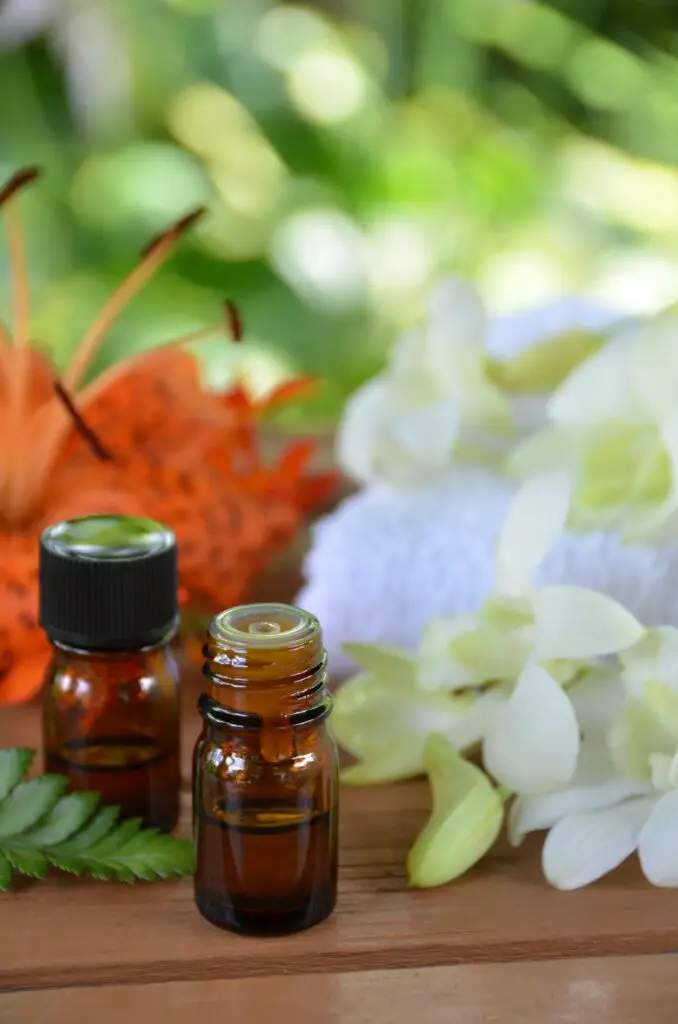
General Concerns With Essential Oils
Phenolic compounds in essential oils can irritate the airways in the lungs, particularly in babies. Terpenes in essential oils make the function of airways in the lungs worse in both normal people and asthmatics.
The oils that you breathe in will be able to reach the deepest air sacs in your lungs where the oxygen enters the bloodstream. The essential oils will also be able to enter your bloodstream and reach every organ-your brain, heart, bone marrow…. Some essential oils, although not necessarily the ones that you may buy have been shown to damage white blood cells. The amounts that enter your bloodstream will probably be small but the exposure may be over many hours, days…
So it would seem best not to use a diffuser in a home with a baby or young children.
In a systematic review of case reports and case series, the most common adverse effect was dermatitis from contact with the skin. The most common essential oils responsible for adverse effects were lavender, peppermint, tea tree oil and ylang-ylang. Other studies have found eucalyptus to also cause adverse effects.
They are poisonous if even small amounts are drunk either because they were mistaken for medicine or by inquisitive children. So they should be stored separately from medication and securely away from children. 50% of cases of inadvertent poisoning by essential oils are in the 1 to 4-year-old age group. If a child drinks the oils, they can induce fits and even cause death. Unfortunately, there is little good clinical long-term safety data. At the time of writing, no essential oils are certified by the FDA. The FDA has warned some aromatherapy companies not to make unfounded claims.
Personally as a physician I wonder if it may be better to take particles and chemicals out of the air that our families breathe rather than introducing new chemicals into the air.
Using Essential Oils to Cover an Odor?
As a general rule it would be healthier to use an air purifier to remove the chemicals causing an odor rather than to add more chemicals to the air to mask the smell of the original chemicals causing the odor. The more carbon in the filter, the more chemical removing capacity the air purifier has. The most effective approach is to get rid of whatever is causing the odor.
The air purifiers with the most carbon in the filter are the iQair HealthPro plus, iQair GC Multigas, or the Austin HealthMate range.
Conclusion
So although there is no good way to use essential oils in an air purifier, it is possible to use them with an air purifier.
When we use essential oils, we are not cleaning the air, in fact we are making the indoor air quality technically worse by putting chemicals into the air. However, it is a relatively low dose and it can lead to a very pleasant experience depending on the essential oil blend.
It is a matter of working out what to do about the carbon filter in most air purifiers, as these will be trying to remove the essential oils from the air. There are several solutions outlined above. The best solution is to buy an air purifier in which you can remove the carbon filter without compromising the filtration of particles by the HEPA air filter.
Before you diffuse essential oils into the air of your home, it would be wise to check with a doctor that the essential oils you choose will not be harmful to the health of anyone living in or visiting your home.
Related Questions
See Also
How Many Drops of Essential Oil to Add to a Diffuser? Health Considerations


